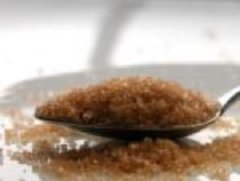Sep 21 2009
Foods usually have complex compositions and are subjected to many changes in temperature during production, transport, storage and processing. Pasteurization, sterilization, cooking and freezing are only some examples of such processes. Along with the factors of time and water content, temperature changes can have a decisive impact on the quality of foods.

Many substances are metastable and undergo phase changes during storage. Chemical reactions such as hydrolysis or oxidation can change color, appearance, or texture, or can even cause foods to become inedible. A good understanding of the effect of temperature changes on the physical and chemical properties of foods is therefore important for manufacturers in order to be able to optimize processing conditions and improve product quality.
Various Thermal Analysis methods, primarily Differential Scanning Calorimetry (DSC) and Thermogravimetry (TG) but also Dynamic-Mechanical Analysis (DMA), yield meaningful results for the evaluation of foods and their raw ingredients. NETZSCH-Gerätebau GmbH, a renowned manufacturer of instruments for Thermal Analysis and for the determination of thermophysical properties, provides equipment for all of the techniques needed for a comprehensive characterization.
For example, the specific heat (cp) indicates the amount of heat energy which must be supplied to or removed from a unit quantity of substance in order to change its temperature by one degree centigrade. This makes the specific heat to an extremely important parameter in the drafting of cooling, freezing, or heating procedures.
Some biological materials, as well as some spray-dried, ground or frozen substances, are amorphous; in other words, thermodynamically they are in a state of non-equilibrium. This is characterized by a so-called glass transition, the temperature position of which is a function of several factors including the water content. Associated temperature-dependent phase changes can thereby cause powders to become sticky, affect the crispness of breakfast cereals or cause gelled starches to crystallize.
The DSC method is the first choice for quick and precise analysis in either case.